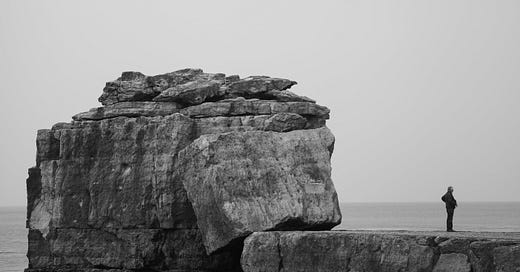How to Find Balance in Life
Seneca's 54th (LIV) letter from his classic book
When some state or other offered Alexander a part of its territory and half of its property he told them that ‘He hadn’t come to Asia with the intention of accepting whatever they cared to give him, but of letting them keep whatever he chose to leave them.’ Philosophy, likewise, tells all other occupations: ‘It’s not my intention to accept whatever time is left over from you; you shall have instead, what I reject.’
The above quote struck a chord with me when I read it, not just because I marvelled at Alexander’s gall but because of the analogy Seneca compared it to, philosophy. Time is a finite resource. Something, unlike territories and conquests one can never get back. When I read the quote I was reminded of how much of our time, or as Seneca uses, philosophy, is taken away from from us. Much like the Grim Reaper with Death wielding his scythe, I imagine a metaphorical arbiter taking away our time and leaving us only enough to keep us going.
Think of our lives, each with the same number of hours in a day but seemingly never enough of them. Days turn into weeks and weeks turn into years. For a 5-year-old to get to the magical number of 10 they have to live a whopping 100% of their life. For a 50-year-old to get to 55 it’s a mere 10%. A blink of an eye.
Think of our jobs, family and social lives. Great (I hope) as they are most of the time they dictate what time we have, or more accurately, have left each day. My wife asked me why I get up at 5 am to read and write the other day when I can do it in the evening. If I did, and I have tried, it just is not the same. My wife is there, my dog, my TV, my phone. I’m tired. I have a loft studio but even when I’m up there and someone else is downstairs there’s almost an admission of guilt and uneasiness the whole time I’m up there.
Seneca utilises the above quote in letter LIV in his famous book, Letters from a Stoic. The book is a select number of letters that were written to a friend called Lucilius. Seneca was aware of this constant attempt at robbery. For him, it’s his philosophy, but for others, it could be something else. It could just be the fact of doing absolutely nothing. Some alone time. Hypothetically we don’t have to turn in for work or do this or do that but most of the time we do. If we do not we end up homeless or isolated or both.
So how do we find a balance?
Most people are carefree with their time and careful with their money. Should it not be the other way around? Time is the most precious and finite currency we have. Should it not be treated accordingly?
The art of saying no. It’s not just as easy as that is it? There are books on it, on how to perfect it, how to not feel guilty when you say it, to yourself, to loved ones. I think a lot of people who say yes do so because saying the opposite is hard. The fear of upsetting people, of yourself. It’s guilt-ridden. It’s giving up when you turn around to yourself, exhausted, and say that you’re not going to the gym or for that run because rest is what you need. It seems like quitting. It can seem rude when a friend invites you for a drink but you say no. Or you say no to the job promotion. DO YOU HAVE NO AMBITION?
Saying no can be all of those things but you also have the power to decide how you react, and how you feel when you say no when you guard and choose what to do with your most precious commodity, time.
If other people are upset that’s their problem. Don’t isolate yourself and say no to everything but choose for yourself a bigger slice of the pie.
In the letter, Seneca decides to take a trip to another island by boat. He states that he hated the ocean but the weather looked favourable so he went for it. The weather soon changed and with seasickness raging and a storm looming Seneca ordered the Helmsman to drop him off on the rugged coast. He jumped in the cold water in his clothes and soon felt quite sorry for himself curled up on the coastline, sick, wet and cold. He was reminded of our physical frailties. Our bodies grow old and wear but our spirit, does that have to? Can the spirit not grow, and become stronger as we age?
Each time we choose what time we have and what time we give back to everyone and everything else, we grow. Our spirits grow. We become richer for it.
‘A god has nature to thank for his immunity from fear, while the wise man can thank his own efforts for this. Look at that for an achievement, to have all the frailty of a human being and all the freedom from care of a god’.
Seneca



